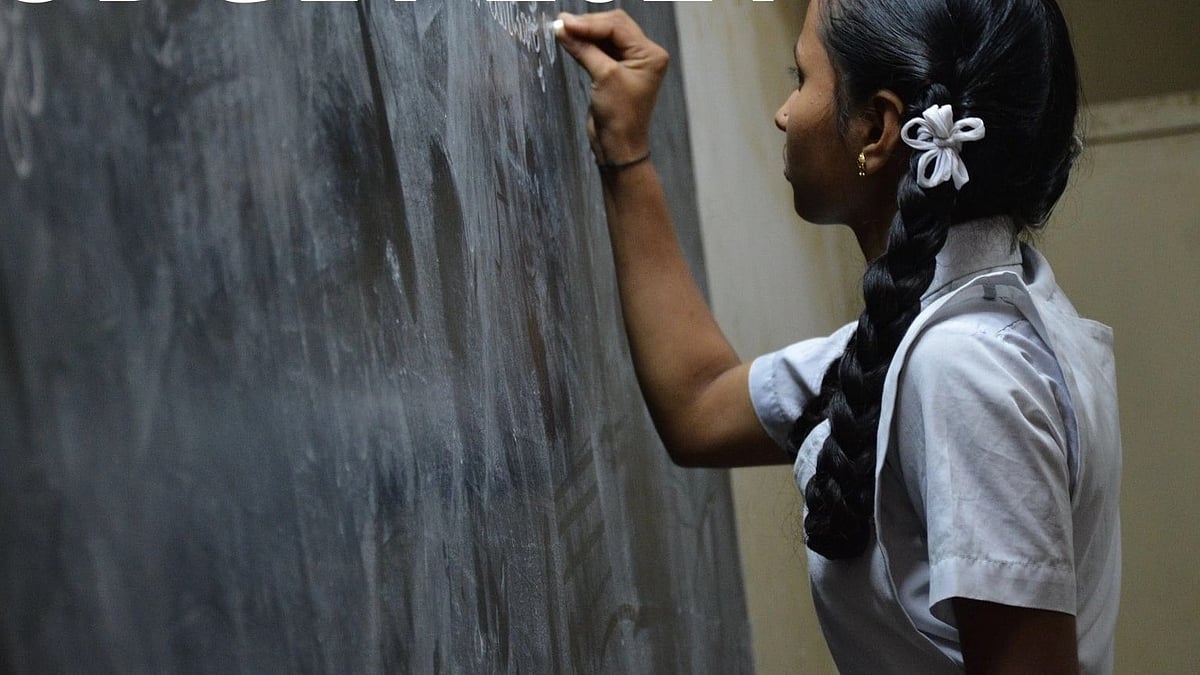Jhabua (Madhya Pradesh): Aged 11 to 18, five girls from Damor family in Jhabua, who all used to go to school earlier, had to find jobs since the pandemic began.
In March 2020, before the pandemic shut down schools, Asha Damor was studying in Class 7 in Dhumadiya village of Jhabua district. Lockdown-induced economic distress forced her father Nansingh Damor to take loans to sustain the family and soon enough Asha found herself working at a farm 60-kilometre from her village. As per new government directives, she has been promoted to Class 8 without ever having glanced upon a textbook or attending a single online class.
Asha and her younger sister, Nandini, 11, are new to the life of labour, but for the past several months, this has been Asha's life. Initially, Damor accompanied his daughters to Badnawar, the nearest village, to work on a garlic farm.
"In the beginning, I worked for around two months in the garlic farm. We used to work from 8.30 in the morning till six in the evening," she said. For this, she was paid Rs 200 a day and given a small room to stay in the field. "We took our own food from the village, like wheat flour, pulses etc. and used to cook on an earthen stove with wood fetched from the nearby forest," Asha said.
The family belongs to Bhil Adivasi community, a Scheduled Tribe. According to the 2011 Census, Scheduled Tribes in Jhabua constitute nearly 86% of total population with a 35% literacy rate in rural parts. Damor and his wife, Kamala, themselves did not receive basic education -- the former studied till Class 5 and Kamala only attended one year of school in her lifetime. The couple had given birth to six girls of which the youngest has been adopted by Damor's elder brother.
The family owns a little farm in the village and every year after harvest, the couple used to migrate looking for work on other farms. "To manage all expenses, I also joined my husband to work outside," Kamala said. Asha with her mother, Kamala, said children wouldn't have gone to work if schools were still open
"Prior to the lockdown all five girls used to go to school; we never compromised on schooling," said Kamala, indicating that if schools were opened they would not have sent the girls to work outside. But their house is under construction and they have a lot of debt, she said, adding that "now both Asha and Nandini have grown up".
"Ghar mein padhai ho nahi rahi hai, isliye 200 ke peeche jaa rahe hai; 200 mil gaye to ho gayi naukri, kitabon ko toh dekha he nahi (There is no studying happening at home. That's why they are going after the Rs 200. They haven't looked at their books at all)," Asha's aunt, Radha Damor said.
According to Madhya Pradesh Commission for Protection of Child Rights (MPCPCR), nearly 40,000 children between Classes 1 and 12 dropped out of school in four tribal districts of the state after devastating second wave of Covid.
"The state of affairs in other districts of MP will be far worse. It is so sad. We are trying to encourage parents to enroll their kids back into school but the financial condition of the lower-middle class and middle-class in India has worsened since the pandemic began," pointed out Brijesh Chouhan, member of MPCPCR. "When so many homes are dependent on NGOs for daily ration, how will parents pay the school fees and buy books," he asked.
Vulnerable to exploitation
In May, when the girls started working at a road construction site in Kajliya village, near Chitordi Rundi, their sister Manisha (12) joined them. The three sisters were among 15-20 other girls who were working alongside other labourers from Dhumadiya and other nearby villages. They were recruited by Bamaniya Panchayat to work at the site and were promised Rs 197 a day. "They came to our village looking for labourers. We worked for a whole month but did not receive any payment. However, the other labourers' payments have been deposited into their bank accounts," Manisha said.
Bamaniya's sarpanch Ramkanya Makhod's husband Sanjay Makhod, however, denied having employed any children below the age of 14. "We paid the labourers Rs 193 per day and there were no children below the age of 14 working at the site," he said as the sarpanch reiterated her husband's claim.
WHAT RESPONSIBLE TO SAY
"With schools closed during the lockdown, student's education has been affected severely. Most of them joined their parents to work outside, migrating to Gujarat and Rajasthan to help sustain a living. The practice of Bal Shram (child labour) is very common in the district. You will find children below the age of 14 working at hotels and various other places. We cannot complain as they are looking after their families with those earnings; they don't have other options. - Benedict Damor, secretary of Adivasi Chetna Shikshan Seva Samiti





